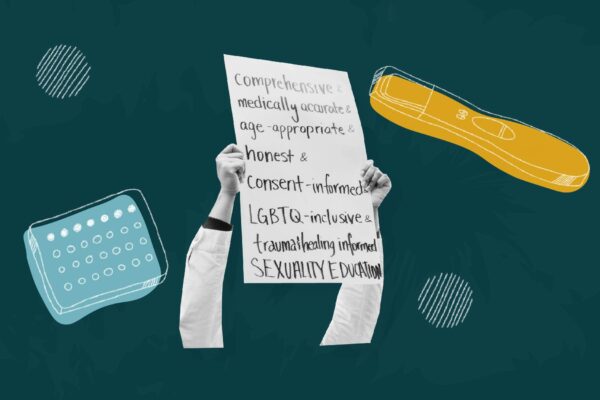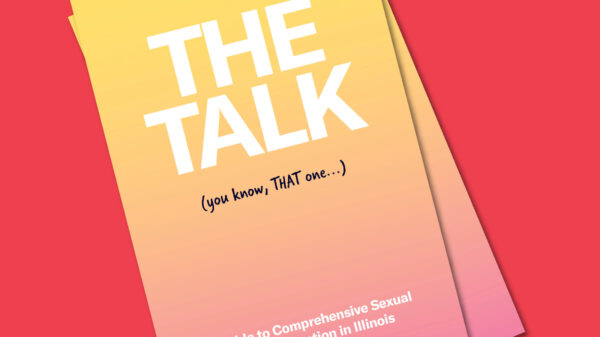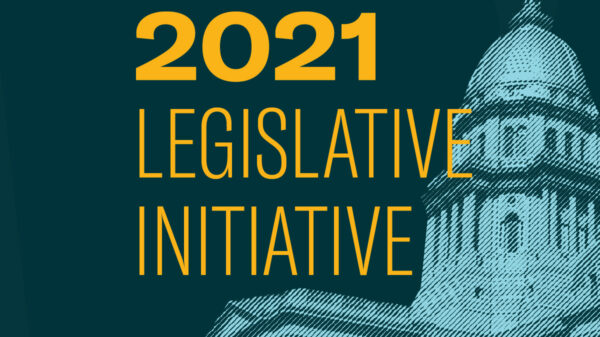By Sarah Wheeler, Director of the Illinois Math and Science Academy ACLU-IL Chapter
“What’s menstruation?” I heard a friend ask, sounding genuinely confused. As I began to attempt an explanation from the very basics, I realized that she did know what menstruation was, but had never been taught its official, medical term. I wondered how she would know how to find proper resources if she had a more urgent question. Furthermore, in a broader sense, I wondered how teenagers could make informed decisions if our only understanding of sexual health education topics was from our own experiences.
By my sophomore year of high school, I had heard one too many sex ed horror stories — tales of teachers not having enough information to answer their students’ questions or of students leaving the classroom feeling unprepared or shamed. So, when the ACLU of IL approached a classmate of mine to involve the youth perspective in a sex ed bill (S.B. 818) that would update Illinois’ standards, I knew I would have something to contribute.
Over the next five months, I worked alongside a group of peers and two amazing mentors from the ACLU of IL to create a zine outlining how S.B. 818 would make sex ed in Illinois more inclusive and comprehensive. Throughout each step of the process, my view of sex ed was reshaped and redefined. When talking with other youth or hearing debates in the Illinois General Assembly, I continued to realize how much of a need there was for sex education in schools. Beyond this, we needed a general, informed understanding of the information sex ed provides. Though its namesake may suggest, sex ed isn’t only about sexual health and behaviors. Included in S.B. 818’s updated curriculum is information about personal safety, avoiding and identifying grooming, and understanding anatomy. It is information crucial to navigating relationships and content relevant to teenagers.
After completing the zine, the same group of classmates who I had worked with decided we should do something more. Our school had no sex ed program, much less one that was comprehensive by now-updated Illinois standards. Armed with our knowledge from the zine creation process, and the expertise of local sex ed educators, we wrote a proposal to our school to implement sex ed for the following year. Though it took months of discussion, this year is the first my school has ever taught a sexual health education program to its students.
But there is still work to be done. Sex education must be taught in all schools, regardless of geographic region or socio-economic status. In some cases, schools may not have the resources to implement such a program, or there may be resistance from stakeholders and community members. This is where youth activism can play a crucial role. Whether it be speaking up at school board meetings, organizing rallies or marches, or creating educational materials to distribute within their communities, by working together, we can create a world where sex education is an essential part of a well-rounded education. It is up to the youth of today to advocate for comprehensive sex education in all schools, so that both themselves and the youth of tomorrow can make informed decisions about their health and well-being.



